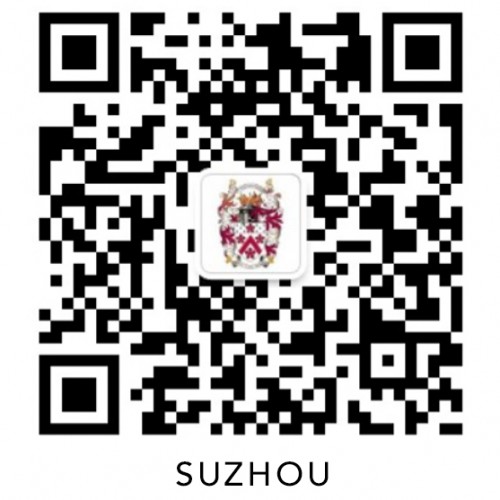Student Spotlight Lark Z, Class of 2023 – Road to Cambridge
Lark Z | University of Cambridge
During the past two weeks, we have shared the IB learning experience from many of our Class of 2023 graduates. They all emphasised how important it was to plan ahead and manage their time well. Lark is no different.
It was an absolute pleasure talking with Lark Z, our Class of 2023 graduate who will attend the University of Cambridge this year. She is sharp, humorous, responsive and always hits the point in discussions.
Finding the “Activation Energy” in IB Preparation
“For me, the most rewarding point, or process, is completing the chemistry IA. At first my experiment set-up didn’t work well; but after more than ten preliminary trials and frequent changes of the method, I finally got the system running. I think the secret of IA is simple: allocate a great time period to it (e.g. an entire afternoon) and concentrate. To ensure this, I often go to libraries or self-study rooms to give myself the “activation energy” of starting a tough task. I will outline the essay’s major structure first, then fill them with subheadings, then your core content… Finally, you will find yourself with a very detailed plan. It’s the last step to turn your scattered sentences into a structured essay. I felt proud of the 21/24 score that I’ve got, and I was thankful for what the experience trained me.”
Obviously, Lark is good at analysing issues, problem solving and summarizing in a logical and clear manner. She has the habit of writing down her thinking and this way helps her to organise her thoughts. In learning Theory of Knowledge (TOK), Lark shared her valuable summary – nothing is more important than the way of thinking.
“When you first encounter your TOK lessons, you may think they are useless or boring. Especially if you are a good thinker, who knows to consider different perspectives, you may think TOK exhibitions and essays are just “saying good words”. However, in TOK, none of the essays or exhibitions are more important than the way of thinking. Someday you will fall into thoughts and wonder about right and wrong. And at that time, TOK will teach you, despite sheer black and white, the world has another area, which is TOK’s favorite phrase: ‘To what extent?’
Tips from Lark, “No fear, get your arguments and examples done early, plan in your own way (it will be more comfortable to use compared with the all-in-one planning sheet). You can write the essay in a single day if your preparation is good enough!”
The Road to Cambridge
When she was small, Lark’s father gave her a book called “God's Scissors: Human Gene Editing” and that lighted her passion for biology and huge interest in genetic studies. Ever since then, Lark has never stopped exploring her interest in the area of science.
With this passion, Lark decided to apply to Cambridge University. In her preparation for the interview, Lark discovered a key point which again, related to the thinking process.
“I found out (through reading other people’s experience) that in Cambridge interviews you are usually asked some questions that they don’t expect you to solve. What you have to show is not your ability of directly solving the issue - which is impossible too, in natural science subjects, due to the limited information given - but your talent in thinking and approaching. You have to talk about what you see, what you interpret, your assumptions and your knowledge. Basically, exhibit your thought process, and let them know that you know a lot about the subject (but don’t go off-track!) and you are confident in solving problems. Do not stay silent and only work on the problem in your head. It would be helpful if you can do a few mocks before the actual interview.”
Lark has participated in many science competitions, such as the USA Biology Olympiad and the British Biology Olympiad. She has obtained a gold medal in USABO (USA Biology Olympiad), silver in BBO (Britain Biology Olympiad), silver in UKCHO (UK Chemistry Olympiad), and 5 in AP Biology.
Her suggestion in this area is, “If you think you have talent in a subject and want to see if you should consider it a major? International competitions may be your trials.”
Family Support
Finally, Lark smiles as she recounts how her family supported her through her educational journey so far. “My family members help me in IB in a significant way. To be clear, they don’t teach me directly, but they may support me in terms of resources and ideas. When I was extremely concerned about the research question, my mum helped me by giving impossible ideas. But you know what? One worked and actually became my real research question!”
However, despite all the support mentioned above, the first thing coming to Lark’s mind was extremely important, “Well, my parents and I never missed a PTC (Parent Teacher Conference).” Parental support and school engagement goes a long way.
Lark demonstrates all the attributes of a high achiever at IB. Not only does she apply herself to her studies but she is fearless in taking on new challenges and will persevere using her ‘activation energy’ to make the most of her learning opportunities.
She organizes her time and her thinking and constantly review it, finding creative ways to solve problems and keeps an open mind for those TOK “to what extent” moments that come along in life. Lark also recognizes the role of family and the school PTCs not just in teaching her directly but as a firm supporting foundation on which she can flourish as a student and as a person.
Congratulations to Lark and her family. We are proud of your achievements and wish you continued success at the University of Cambridge next year.






